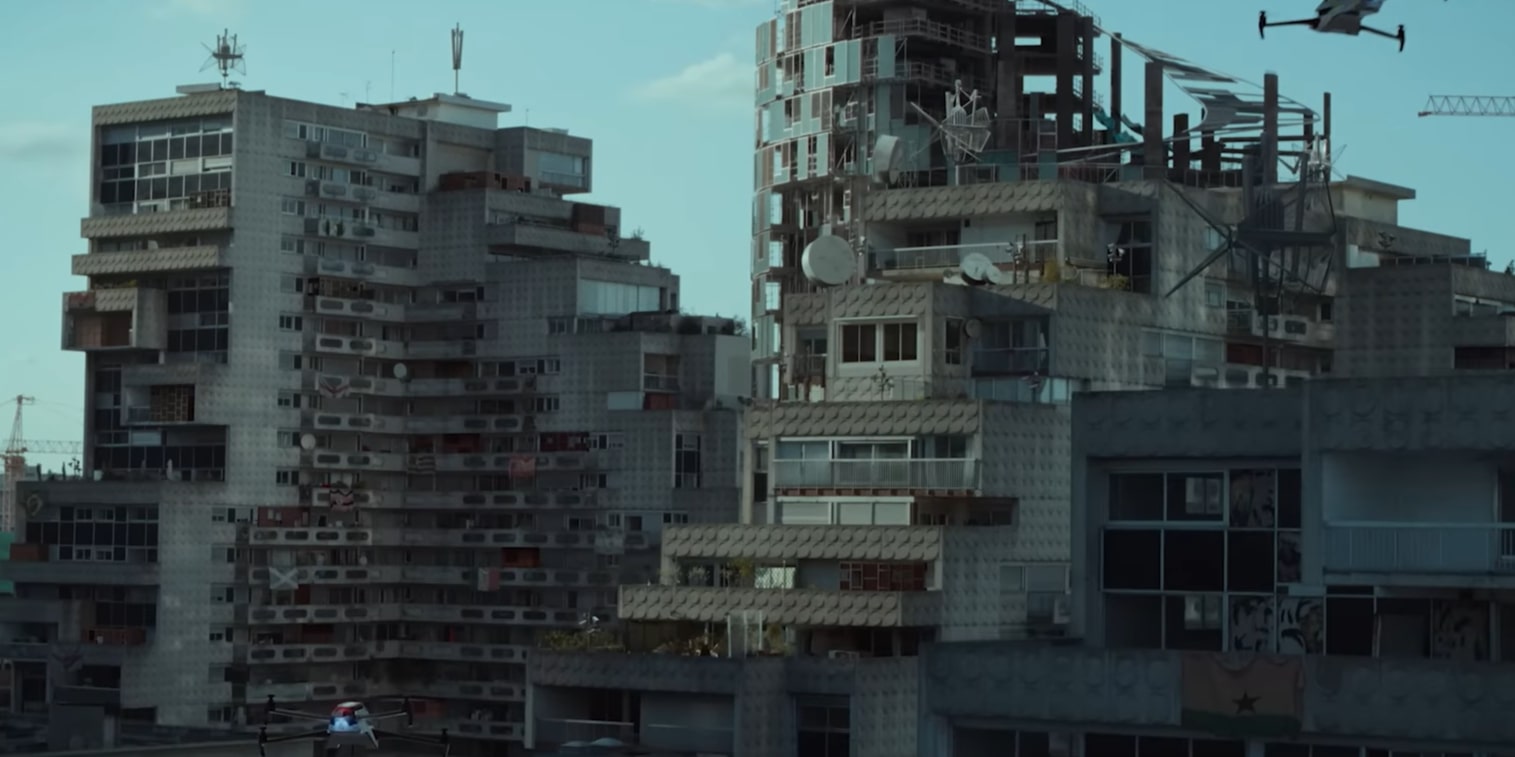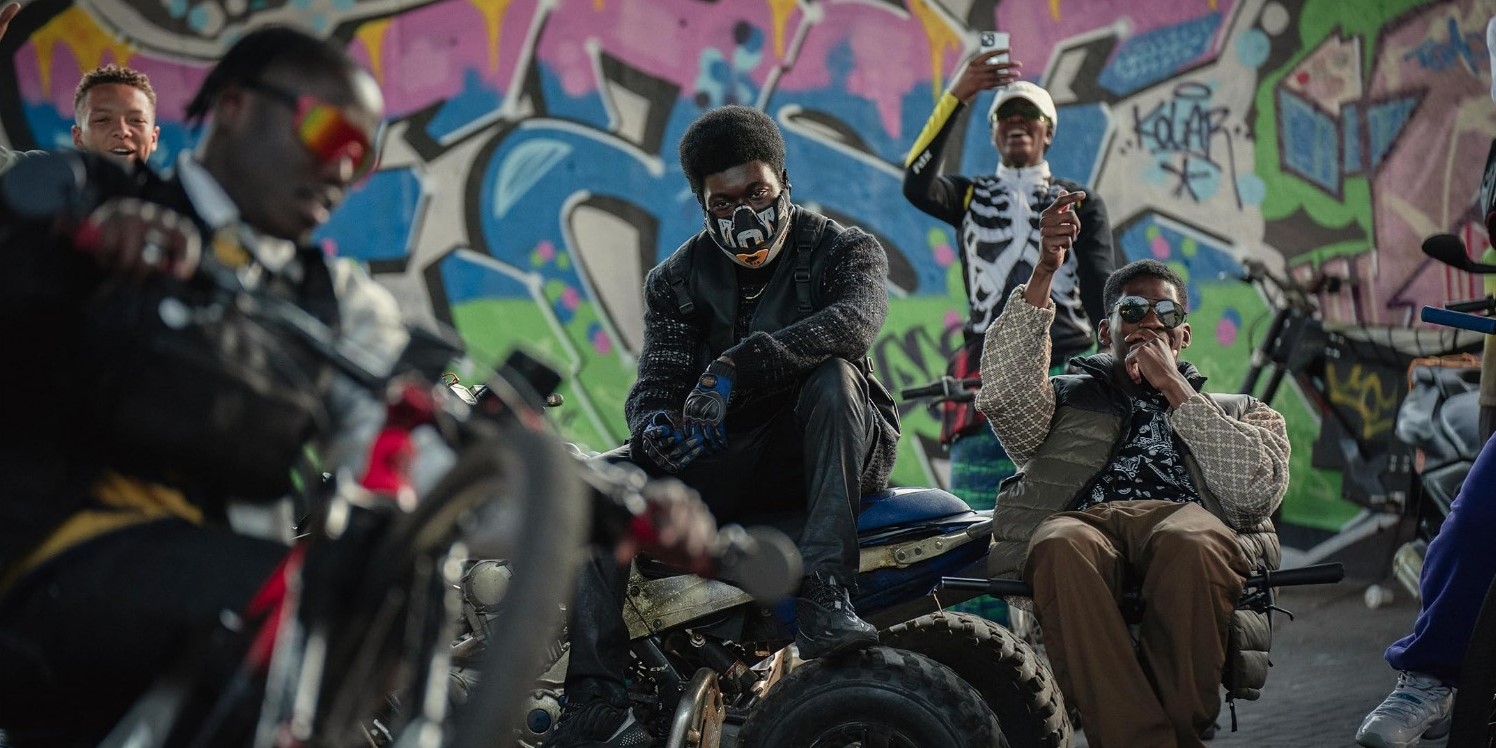Netflix’s dystopian sci-fi drama, ‘The Kitchen,’ presents the story of a man whose plans to leave the social housing he is living in are derailed after the arrival of a 12-year-old boy. While the movie explores their relationship and the man’s efforts to become the father figure the boy needs, we also get an insight into the kind of world they are living in, which is not so different from our own. The social, political, and cultural aspects of the world are explored through the lens of the oppressed, and the title of the film conveys that meaning aptly. SPOILERS AHEAD
The Kitchen is the Symbol of Rebellion Against the Oppression

In one of his interviews, writer-director-producer Daniel Kaluuya revealed that the title of the film is a reference to Charles Dickens’ 1838 novel ‘Oliver Twist.’ The novel, which is thematically similar to Kaluuya’s ‘The Kitchen,’ is also set in London and shines the light on several socio-political issues, told through the perspective of a young boy who has to navigate the cruelty with which life and the world treat the poor. The reference for the Netflix film comes from the kitchen of the character named Fagin, who houses the orphaned children and turns them into criminals.
Having seen ‘The Kitchen,’ one can point out many thematic parallels between the novel and the film, but the latter expands the idea of the Kitchen beyond Fagin’s kitchen. In the movie, which Kaluuya co-wrote with Joe Murtagh and co-directed with Kibwe Tavares, the Kitchen refers to the last point of resistance in a society that has been consumed by the gaping chasm between the rich and the poor. The government has completely forgone any concern for the poor, and the idea of social housing has crumbled, except in the Kitchen. It is the only place where the authorities try to force their way in but meet continual resistance from its residents. The community stands as one, as people look out for each other and let it be known that they will not be moved.
Due to its singular status in the dystopian world, the Kitchen becomes something that the outsiders see with suspicion as well as reverence. It is not just a symbol of resistance but also perseverance. In an interview with Rolling Stone, Kaluuya remarked that every city has a “Kitchen” of its own. A place that represents survival and hope, no matter how much the odds are stacked against them. He referenced London, which is also the setting of his film, and its history, especially being inundated during the World Wars.

“Before the Blitz, this is how London was. That’s what Dickens was talking about — poor against rich, and we’re going back to that,” he observed, speaking of how closely the dystopia in ‘The Kitchen’ resembles what’s going on in parts of the world today. In that sense, the Kitchen becomes the “one bit that has the last bit of soul left,” symbolizing the roots of the community that hold everything together, as everything from gentrification to war pulls people out of their homes at the behest of the powers that be.
While ‘The Kitchen’ is about survival and revolt, it is also about the love of family and community. Even though the young people in the Kitchen are forced to live in a dark world, they still find joy, love, and a sense of belonging with each other. Kaluuya observed how films about the hood would often take away from this joy and focus simply on the darker aspects of the story. He wanted to show the resilience as well as the light and the happiness people find within their roots and their community, which is what forms the heart of the story.
Read More: The Kitchen: Peek Into the Sites Where the Netflix Movie Was Filmed


You must be logged in to post a comment.